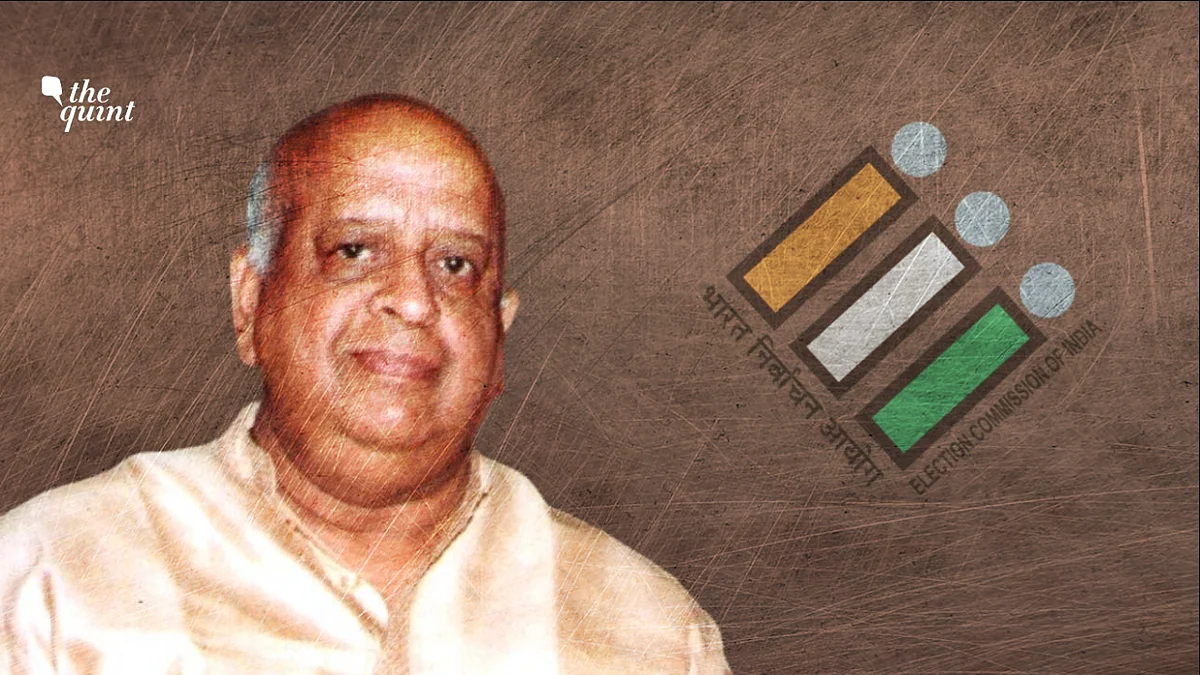TN Seshan Told Me, ‘You Better Have Skin of Rhinoceros — Like Me’
Navin Chawla, 16th Chief Election Commissioner, pays a rich tribute to his mentor, TN Seshan.

advertisement
(This personal blog about the celebrated former Chief Election Commissioner was originally published in the aftermath of his demise in 2019. It has been republished on the occasion of his birth anniversary, 15 December.)
Soon after I was appointed Election Commissioner in 2005, I availed of a visit to Chennai to call on Mr Seshan, living in retirement in his home in Chennai.
I have to preface this by saying that although I had never worked under him in the government, I had developed a surprisingly close relationship with him – notwithstanding the gap in seniority in service and age.
While I was conscious of his relative warmth for me, I was conscious, too, that he had evolved into a legend as Chief Election Commissioner, a figure larger than life, known for his caustic wit.
And so that morning in his home, as his ever gracious wife served us coffee with her own hands, I sat at the very edge of my chair, as I was ever won't to do in his presence.
‘My Skin is That of a Rhinoceros’
"Do you see my skin?" he said, apropos nothing. I murmured that I did, not knowing of course where this was leading. More loudly he repeated,
And when, a year later, a political party began to attack me, he would repeat this advice, telling me that he had had plenty of experience in this regard.
For it was he who was the first to take on headlong the political establishment of his day, discovering the power potential of Article 324 of the Constitution, that afforded uniquely amongst the heads of electoral management bodies worldwide, the enormity of the power that the head of the Commission could wield.
‘Gave The Existing MCC Its Real Set of Teeth’
A power so vast that during the course of the actual election process, he was supreme, as he was on all electoral related matters.
To the delight of the country at large, he gave to the existing Model Code of Conduct it's real set of teeth, pulling up the political high and mighty who strayed out of line, threatening to suspend or call off elections if the rule book was not observed.
In the face of mounting protests, he often said he did not create the MCC, he simply decided to enforce it.
While these are some of the major reasons that TN Seshan will be remembered, he had more than his fair share of idiosyncrasies too.
Meanwhile, the political establishment had become seriously alarmed at what they considered to be his whimsical actions.
When the then Prime Minister added two additional commissioners, Seshan believed this was an effort to rein him in. He filed an appeal in the Supreme Court against their appointment.
For a year and a half that this matter took to be decided, he continued to act as a single man commission, refusing to recognise the new members and assigning them no work. It was only when the Court came down rather heavily on him did he reluctantly accept the new order of things.
I last met him when I went to condole the passing away of his wife Jayalakshmi in 2018.
He had difficulty moving around, he was hard of hearing, but his mind was as razor sharp as it ever was. He recollected our first meeting. He wryly commented that sections of the press had announced his death instead of his wife's.
Death came as a release to a man who had dedicated his life to public service with the highest sense of integrity, and in the process made his own name synonymous with the independence and reform of the Election Commission.
(Navin Chawla is a retired Indian civil servant and writer, who served as 16th Chief Election Commissioner of India. This is a personal blog and the views expressed are the author's own. The Quint neither endorses nor is responsible for them.)
(At The Quint, we question everything. Play an active role in shaping our journalism by becoming a member today.)